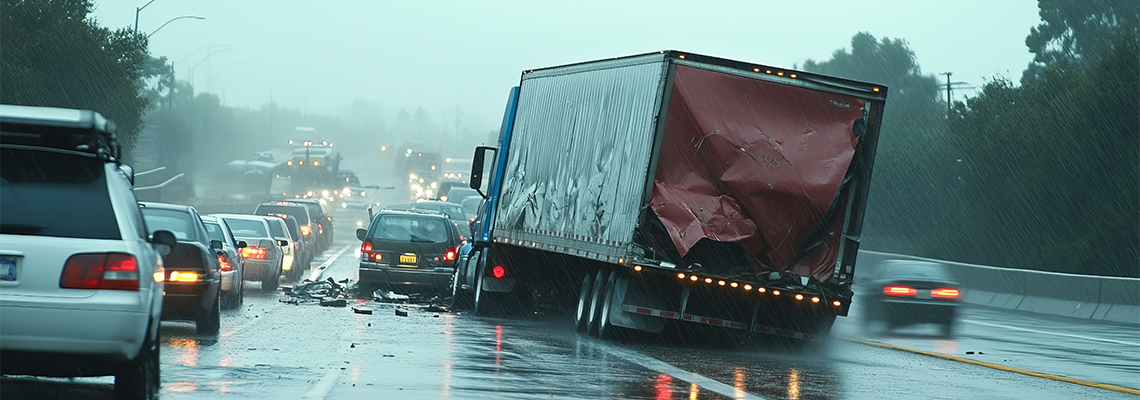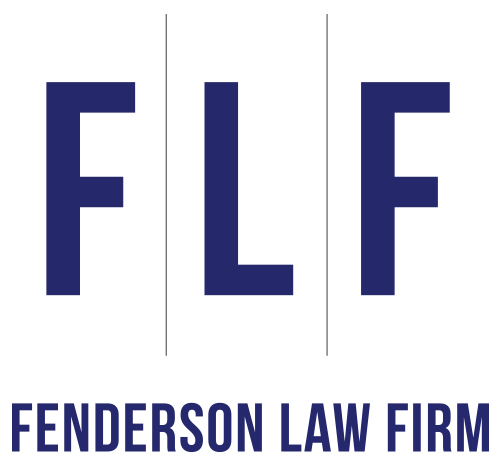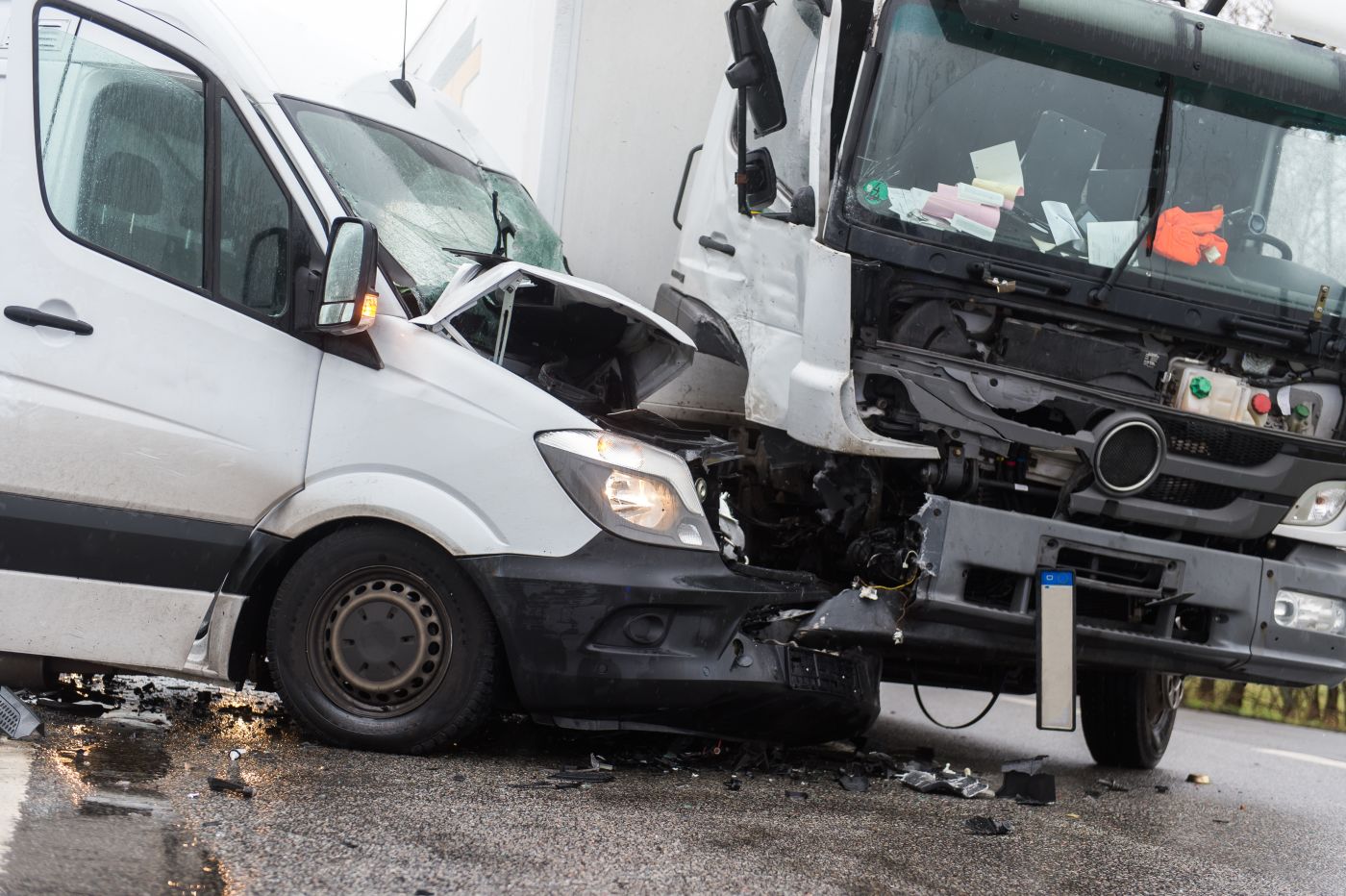
Truck accidents can be devastating, leading to severe injuries, significant financial burdens, and complicated legal challenges. Unlike standard car accidents, truck accident claims involve multiple parties, federal regulations, and intricate insurance policies.
At Fenderson Law Firm in Orlando and Jacksonville, Florida, we understand the difficulties victims face and work to secure fair compensation. A truck accident attorney can help manage the claims process and protect your rights.
Understanding the legal hurdles in truck accident claims is crucial for achieving a successful outcome. Victims must prove liability, deal with powerful insurance companies, and address complicated trucking laws. Read on to learn more about the unique challenges of truck accident claims and how to manage them effectively with the help of a truck accident attorney.
Determining Liability in Truck Accidents
One of the most challenging aspects of truck accident claims is determining who is at fault. Unlike car accidents, where liability often falls on a single driver, multiple parties could be responsible for a truck crash. This intricacy makes it essential to examine all possible sources of liability.
Trucking companies may be held liable if they fail to maintain their vehicles or force drivers to meet unrealistic deadlines. The truck driver could be responsible for negligent driving, such as speeding or driving while fatigued. Additionally, manufacturers may be at fault if defective parts contributed to the accident. Identifying all liable parties is crucial to assuring full compensation.
When multiple parties are involved, insurance companies will often shift blame to minimize payouts. This can create lengthy disputes that require extensive evidence, including accident reports, maintenance records, and electronic logging device (ELD) data. These challenges lead directly into the next issue—managing complicated trucking regulations.
Managing Federal and State Trucking Regulations
Trucking companies and drivers must follow strict federal and state regulations designed to promote road safety. These laws cover everything from driver rest periods to vehicle maintenance requirements, and violations can significantly impact a claim.
The Federal Motor Carrier Safety Administration (FMCSA) enforces rules that limit driving hours to prevent fatigue-related crashes. Trucking companies must also maintain proper inspection records and assure their vehicles meet safety standards. If a driver or company violates these regulations, it can serve as strong evidence of negligence in an accident claim.
However, proving regulatory violations requires access to specific records, such as driver logs, employment history, and vehicle maintenance reports. Gathering this evidence can be time-consuming, making legal representation crucial. The involvement of multiple insurance policies further complicates truck accident claims.
Dealing With Multiple Insurance Policies
Unlike standard car accident cases, truck accidents often involve multiple insurance policies with high coverage limits. While this may seem beneficial, it often leads to aggressive insurance tactics aimed at minimizing payouts.
Some key challenges of dealing with multiple insurance policies include:
Conflicting coverage: The truck driver, trucking company, and cargo owner may each have separate insurance policies, leading to disputes over which policy should cover damages.
Policy exclusions: Some policies have specific exclusions that limit coverage in certain scenarios, such as accidents involving independent contractors rather than full-time employees.
Delays and denials: Insurance companies may delay claims or deny liability to avoid paying large settlements, forcing victims into lengthy negotiations or litigation.
To overcome these challenges, accident victims need to gather strong evidence and negotiate strategically. Legal guidance is often necessary to push back against bad-faith insurance practices. Beyond insurance disputes, the severity of truck accident injuries adds another layer of difficulty to these claims.
Addressing the Severity of Injuries and Damages
Truck accidents often result in catastrophic injuries due to the sheer size and weight of commercial vehicles. Victims may suffer spinal cord injuries, traumatic brain injuries, or multiple fractures, leading to long-term disabilities and high medical costs.
Injuries from truck accidents frequently require extensive medical treatment, rehabilitation, and ongoing care. This makes it essential to calculate future expenses accurately when seeking compensation. A fair settlement should cover not only current medical bills but also lost wages, pain and suffering, and diminished quality of life.
The financial stakes in truck accident claims are often high, leading insurance companies to dispute the severity of injuries. They may argue that pre-existing conditions contributed to a victim’s suffering or downplay the long-term impact of an injury.
These disputes highlight the importance of strong medical documentation and expert testimony, which also play a critical role in proving fault.
The Impact of Evidence in Truck Accident Claims
Building a strong truck accident claim requires gathering substantial evidence to support the victim’s case. Unlike car accident claims, where liability may be clear from a police report, truck accidents demand a more in-depth investigation.
Some of the most important types of evidence in truck accident cases include:
Black box data: Most commercial trucks are equipped with electronic logging devices (ELDs) that record speed, braking, and driving hours, which can provide crucial knowledge about how an accident occurred.
Maintenance and inspection records: Trucking companies must keep records of vehicle maintenance, which can reveal whether a mechanical failure contributed to the crash.
Driver logs and employment records: These documents can show whether a driver was overworked, improperly trained, or had a history of violations.
Obtaining this evidence often requires legal action with the help of a truck accident attorney, as trucking companies and insurers may attempt to conceal or alter records. A thorough investigation can uncover key details that support a victim’s claim. Once liability is established, calculating fair compensation becomes another challenge.
Calculating the Full Value of a Truck Accident Claim
Truck accident claims often involve substantial compensation due to the severity of injuries and damages. However, accurately calculating the full value of a claim requires careful consideration of both economic and non-economic losses.
Economic damages include medical expenses, lost wages, and property damage, which are relatively straightforward to calculate. Non-economic damages, such as pain and suffering or emotional distress, are more subjective and require careful evaluation.
Insurance companies often attempt to minimize payouts by disputing medical costs or arguing that victims can return to work sooner than expected. To secure a fair settlement, victims must present strong medical evidence and expert testimony that supports their long-term needs. Litigation may be necessary if insurers refuse to offer a reasonable settlement.
When Litigation Becomes Necessary
While many truck accident claims are resolved through settlements, some cases require litigation to achieve fair compensation. Insurance companies may refuse to negotiate fairly, forcing victims to take their case to court.
Going to trial involves presenting evidence, witness testimony, and expert opinions to prove liability and damages. While litigation can be time-consuming, it may be the best option for victims facing unfair settlement offers.
The decision to file a lawsuit depends on the circumstances of the case, including the strength of evidence and the willingness of insurers to settle. An experienced truck accident attorney can guide victims through this process and help them make informed decisions about their legal options.
Protect Your Rights With a Truck Accident Attorney
At Fenderson Law Firm, we understand the intricacies of truck accident cases and fight to protect our clients' rights. Located in Orlando and Jacksonville, Florida, we serve clients throughout North Florida, including Jacksonville, Pensacola, Tallahassee, Gainesville, Ocala, and Panama City, and Central Florida, including Orlando, Tampa, St. Petersburg, Clearwater, Lakeland, Deltona, Largo, and beyond.Contact us today to discuss your case with an experienced truck accident attorney.


